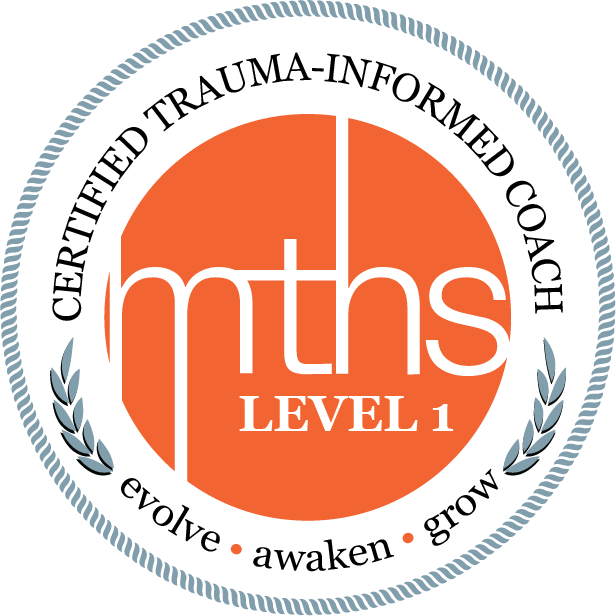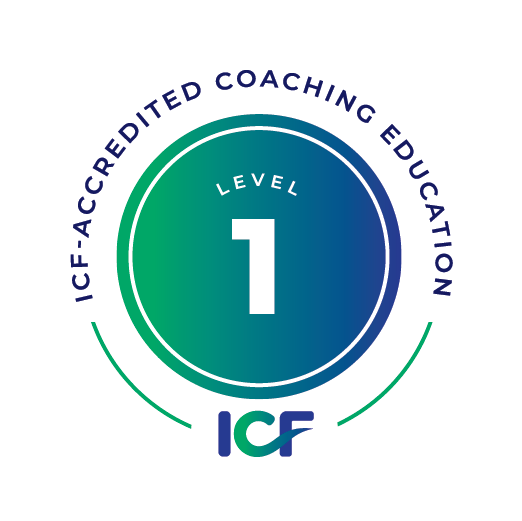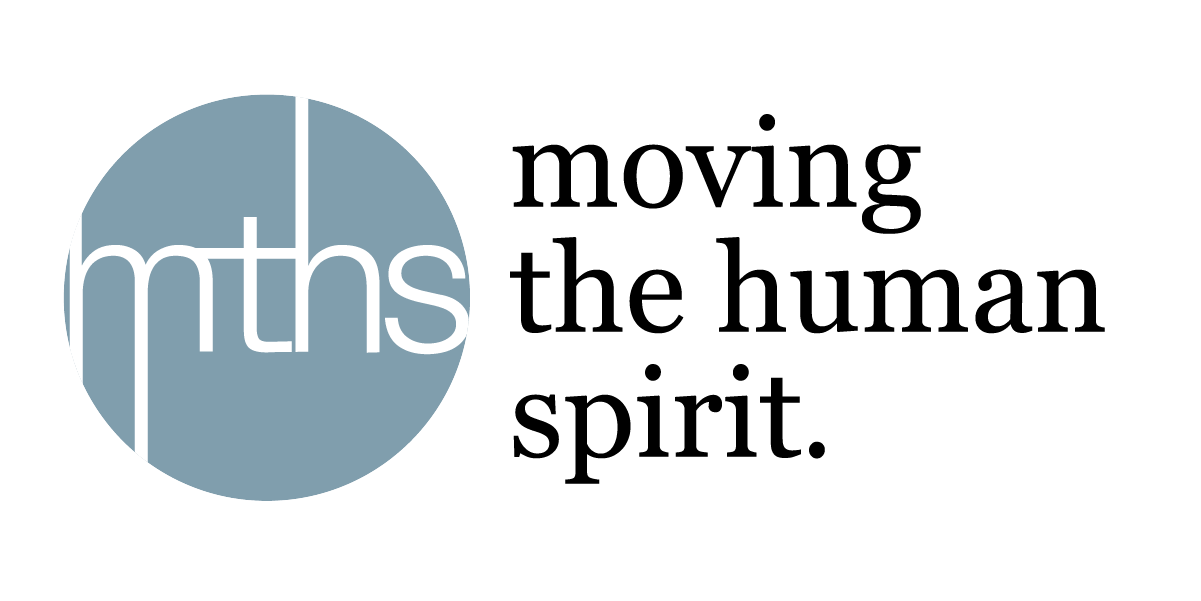Trauma-Informed
Coaching Certification Level 1
Coaching Certification Level 1
Trauma-Informed Coaching Certification
Level 1
106 ICF participant contact hours
106 ICF participant contact hours
About This Course
When it comes to trauma-informed coaching, Moving the Human Spirit (MTHS) has set the global standard. As the world’s longest-running Trauma-Informed Coach training program, we are proud to offer a certification that not only meets but surpasses industry benchmarks. Our comprehensive program equips coaches with the tools they need to make a meaningful difference in the lives of trauma survivors, helping them navigate their recovery with confidence and resilience.
Participants who complete the Trauma-Informed Coaching Certification full Level 1 accredited program will be eligible to apply for credentials from the International Coaching Federation (ICF) using the ACC LEVEL 1 Credentialing Applications. These applications do not require participation in the ICF Performance Evaluation Process.


Trauma-Informed Coaching Certification Level 1 is designed to enhance the learning of coaches interested in working with trauma survivors and coaching them in their recovery. It offers a unique opportunity to gain self-awareness and build confidence in your ability to recognize when the presence of trauma is impacting clients or preventing them from moving forward resourcefully. You will learn how trauma affects the body, how to coach trauma survivors effectively, when to refer a client and much more.
The International Coaching Federation (ICF) has accredited this course at Level 1 – students who complete our course successfully and plus 100 hours of coaching experience can apply for the ICF’s Associated Certified Coach (ACC) credential.
Who is this training for?
Anyone who wants to become a trauma-informed coach with an ICF accreditation of ACC (accredited certified coach) and anyone interested in the basic principles of coaching and how to demonstrate coach competencies alongside in-depth learning about trauma, its effects on clients and how to coach the processing of trauma.
No previous coaching experience is required.
Success in our program requires total commitment by all participants. By enrolling in this course, participants agree to be fully present during all sessions and participate to the best of their ability. This includes arriving on time, abiding by the code of conduct, and engaging in course activities. The intensity of our training to become a Trauma-Informed Coach can stimulate difficult emotional situations. This training was developed to train coaches and is not a substitute for personal therapy. Moving the Human Spirit (MTHS) reserves the right to deny acceptance to an applicant and may withdraw a participant from the program at any time if a participant’s behavior, attitude, or views negatively impact the quality of the training program or the other participants.
• Our courses are designed to be interactive and engaging for our participants. Therefore, you are expected to participate in course activities, including dialogue with the course instructor and peers, practice coaching activities, and experiential learning exercises.
Accredited and Respected by the ICF
We are proud to be an International Coaching Federation (ICF)-accredited Level 1 program. Graduates who successfully complete our certification, coupled with 100 hours of coaching experience, are eligible to apply for the ICF’s Associate Certified Coach (ACC) credential. This accreditation underscores the credibility and quality of our program, offering students a clear pathway to professional recognition and growth.
Course Materials
Students receive:
- Welcome package with class links and videos to complete in advance
- Course manual for review and notes
- Student portal login where you can access class materials and assessments
- Ten hours of ICF mentoring – three group mentor sessions and three one-on-one sessions.
Successful graduates receive:
- Access to the course alumni page on Facebook
- An invitation to include your coaching bio on our website
Course Hours
Trauma-Informed Coaching Certification Level 1 is 106 hours, consisting of:
- 20 three-hour modules of online teaching: 60 hours
- Self-guided triad practice: 14 hours (outside of class)
- Online ICF Ethics course: 3 hours (outside of class)
- ICF Core Competency video review: 2 hours (outside of class)
- Prerequisite module bridge: 1 hour (outside of class)
- Questions to examine: 10 hours (outside of class)
- Exam allowance: 4 hours (outside of class)
- Mentoring: 10 hours (3 hours outside of class)
- ACC recording review and transcript development: 2 hours (outside of class)
Course Fee
Beyond the Standard:
Over 100 Hours of Training
Over 100 Hours of Training
Our Trauma-Informed Coach Certification program exceeds the International Coaching Federation’s (ICF) Level 1 accreditation standards, which typically require 60 hours of training. By offering 106 hours of intensive, facilitator-led instruction, we provide participants with a comprehensive and immersive educational experience. This robust curriculum is tailored for coaches dedicated to supporting trauma survivors, enhancing their self-awareness and building confidence in their ability to navigate complex coaching scenarios effectively.
Participants gain essential knowledge about how trauma affects the mind and body, how to coach trauma survivors on their recovery journey, and when to refer clients to other professionals. Our program equips coaches with the tools to recognize when trauma may be preventing clients from moving forward resourcefully and to support them in finding clarity and resilience.
As an ICF-accredited Level 1 course, graduates who successfully complete the program and accumulate 100 hours of coaching experience can apply for the ICF’s Associate Certified Coach (ACC) credentia
Building Confidence and
Self-Awarenesss
Self-Awarenesss
Coaching survivors of trauma requires a nuanced approach. At Moving the Human Spirit, we emphasize the importance of self-awareness for coaches, providing opportunities to reflect on their own relationship with trauma and how it may influence their practice. This self-awareness builds confidence, empowering our coaches to navigate challenging conversations with skill and empathy.
Our curriculum is designed to:
- Enhance your understanding of how trauma impacts the mind and body.
- Equip you with strategies to support clients in their recovery journey.
- Help you recognize when trauma might be affecting your clients’ ability to move forward.
- Provide guidance on when and how to refer clients to other professionals.
Level 1 Trauma-Informed Coaching Certification
Training Components
TICC Basics Training (TICCB)
Level 1 Trauma-Informed Coaching Certification Basics is a 8 session component and is designed to deliver the basic principles as well as competencies of a coaching relationship in preparation for the advanced component.
80% Attendance required along with three Triads/Dyads, one 15 min recording for written feedback and a final exam.
TICC Advanced Training (TICCA)
Level 1 Trauma-Informed Coaching Certification Advanced is a 12 session component designed to build the skill and confidence to work with clients who have experienced traumatic events and to facilitate growth in such an environment.
80% Attendance required along with four Triads/Dyads, two 15 min recordings for written feedback and a final exam.
TICC (10 Hour ICF) Mentoring (M)
Level 1 Trauma-Informed Coaching Certification Mentoring is a 10 hour component consisting of 7 hours of group mentoring and 3 hours of one-on-one mentoring, over a three month period in preparation for your final assessment.
100% Attendance required along with recordings for group learning review.
ICF ACC Assessment
In this component a coach recording will be required for assessment.
Upon passing this assessment, plus collecting 100 hours of coaching in your “coach log”, you may apply for the ICF’s ACC credential after which you will be invited to complete the ICF Coach Knowledge Exam.
Syllabus
The course is divided into three components – Component 1 introduces the concept of coaching, the ICF Core Competencies Model (2021) and ICF ethical requirements, building the foundation for undertaking the coaching process. Component 2 focuses specifically on coaching trauma. Component 3 mentoring consists of coaching and feedback in a collaborative, appreciative and dialogued process based on an observed or recorded coaching session to increase the coach’s capability in coaching in alignment with the ICF Core Competencies.
Component 1: Coaching Concepts
Component 2: Coaching Trauma
Component 3: Mentoring
TRAUMA-INFORMED COACH TRAINING
Why Become a Certified Trauma-Informed Coach with Moving the Human Spirit?
At Moving the Human Spirit, we believe that every coach has the potential to transform lives. By choosing our Trauma-Informed Coach Certification, you’re not just learning how to coach – you’re becoming part of a movement dedicated to healing, growth, and resilience.
Experience: With a legacy as the longest-running program of its kind, our expertise in trauma-informed coaching is unparalleled.
- Comprehensive Training: Our program exceeds industry standards, providing over 100 hours of immersive, facilitator-led content.
- Unique Learning Opportunities: We offer a blend of self-awareness exercises, practical tools, and in-depth knowledge to help you become a more effective coach.
Global Recognition: Our ICF accreditation ensures that your certification is respected worldwide, opening doors to a fulfilling career in coaching.
What Do Our Graduates Say?

TICC builds a safe learning platform for participants to engage in trauma-informed learning. The course offers updated scientific knowledge and practical tools to support learners applying effective coaching techniques in any workplace, and work field; at the same time, the learning journey itself can become a trauma healing process in both personal and professional level. The facilitators and organizers are supportive to everyone. I enjoyed the learning process and meet other great professionals who have similar interests.
Keybi, TICC Graduate

All I can say is: Wow. I enrolled in this course at the recommendation of a friend, hoping to gain some wisdom, skills, and insight into coaching in general, and wanted a trauma-informed lens. This course (TICB and TICC) gave me that and then some! Not only was I learning, but I was doing some own inner healing. This was one of the most eye-opening, mind-blowing and incredible experiences of my life!
Marisa D, TICC Graduate

Every person experienced trauma, whether they’re aware of it or not. The TICC coaching model enables coaches to FULLY meet their clients where they are. Whether you want to work directly with clients who are aware of their trauma or you want to work with the general public or even in a business or corporate setting…trauma will find its way into the conversation when the space is safe. It’s imperative to know how to hold that space. TICC shows you how. I left this program fully confident that I can coach anyone on anything.
Amy, TICC Graduate
Trauma-Informed Coach Training FAQs
Find out more about becoming a trauma-informed coach
We would love to support you on your journey!
